ReCOVERY YOU services
Creating Better Health, Movement, Independence & Quality of Life.
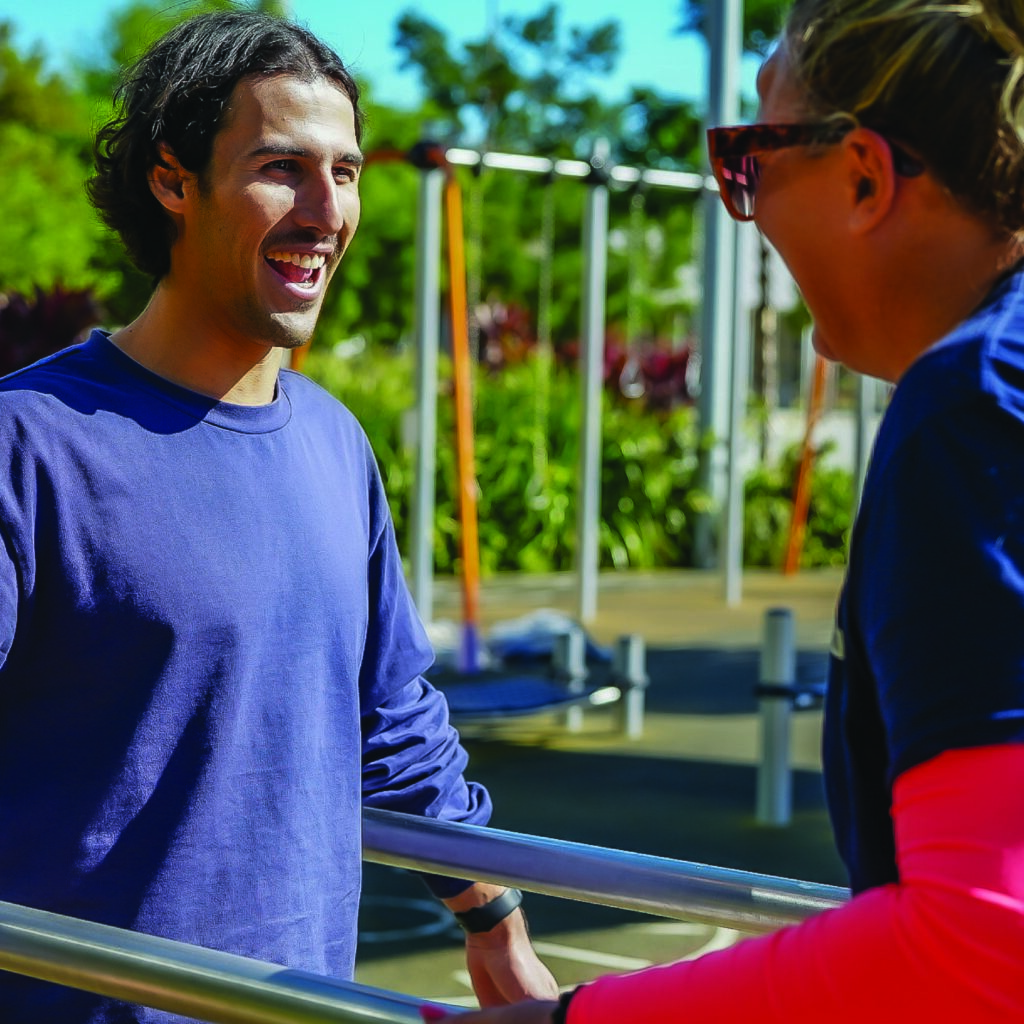
Our Services
At Recovery You, we provide numerous services to help our clients reach their optimum potential physically and mentally. We work with children, teenagers and adults with all sorts of different health problems and goals.
We focus on evidence-based, targeted exercise intervention to manage your health for those that are living with disability, chronic conditions and injuries, with an aim to better ones quality of life.
We prescribe holistic exercise programs to support a continued healthy lifestyle, improve mental strength and develop the building blocks for a more fulfilled day-to-day life.
Exercise Physiology services can provide:
- Improved stamina and muscle strength
- Improved fitness, flexibility and mobility
- Improved mood and mental health
- Reduced risk of health conditions such as heart disease, high blood pressure and diabetes
- Reduced anxiety, feelings of stress or risk of depression
- Reduced pain
- Improved sleep
- Improved immune system and,
- Increased confidence and self-esteem.
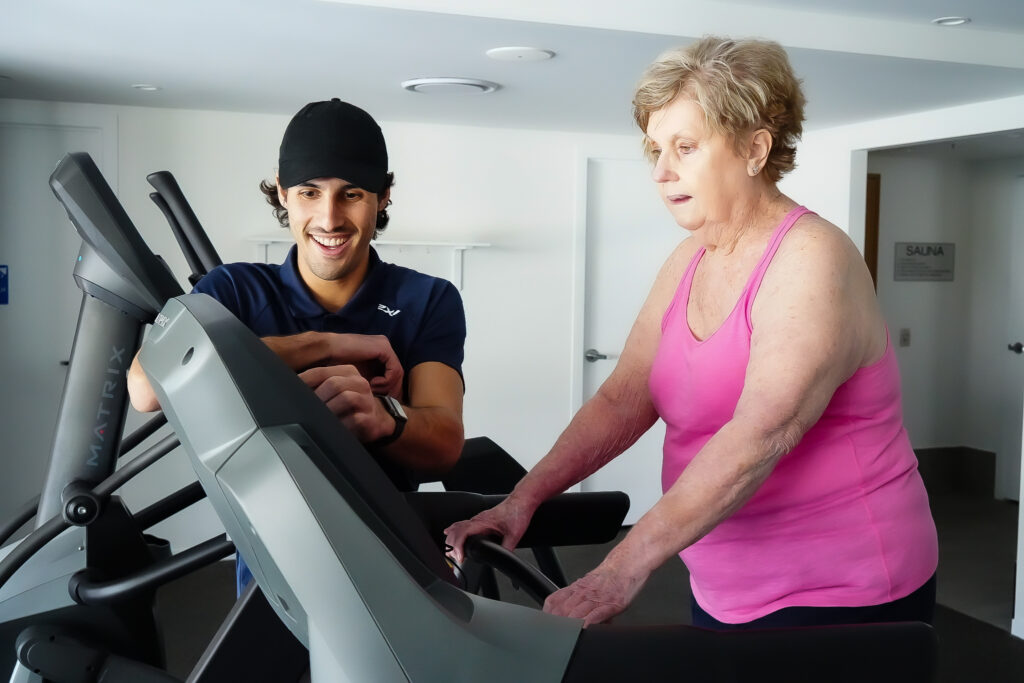
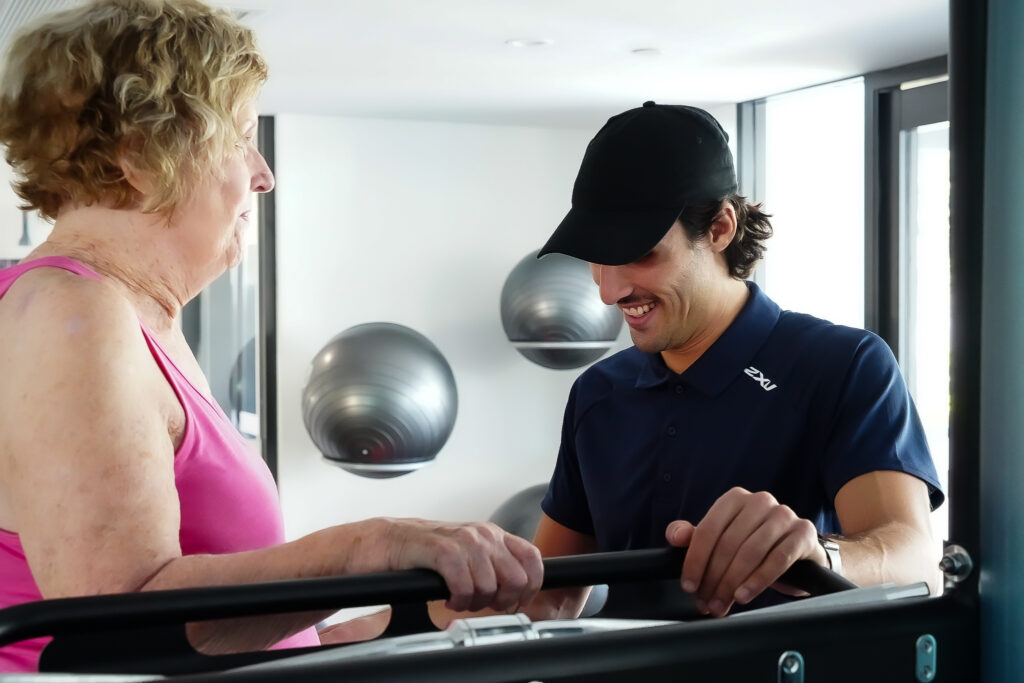
Cardiovascular Disease
Exercise physiology plays a crucial role in the treatment of cardiovascular disease. Regular exercise can improve cardiovascular health by strengthening the heart muscle, lowering blood pressure, reducing cholesterol levels, and improving blood circulation. Recovery You designs individualized exercise programs that incorporate aerobic exercises, such as walking, cycling, or swimming, along with resistance training to help manage and prevent cardiovascular conditions like heart disease, hypertension, and coronary artery disease.
Neurological Disorders
Exercise physiology is extremely beneficial in the treatment of neurological disorders such as stroke, cerebral palsy, multiple sclerosis, and many more. Regular exercise can help improve motor function, balance, coordination, and overall quality of life. Recovery You works closely with patients, developing specialised exercise programs that target specific neurological impairments. These programs may include a combination of cardiovascular exercises, strength training, and activities that focus on coordination and balance.

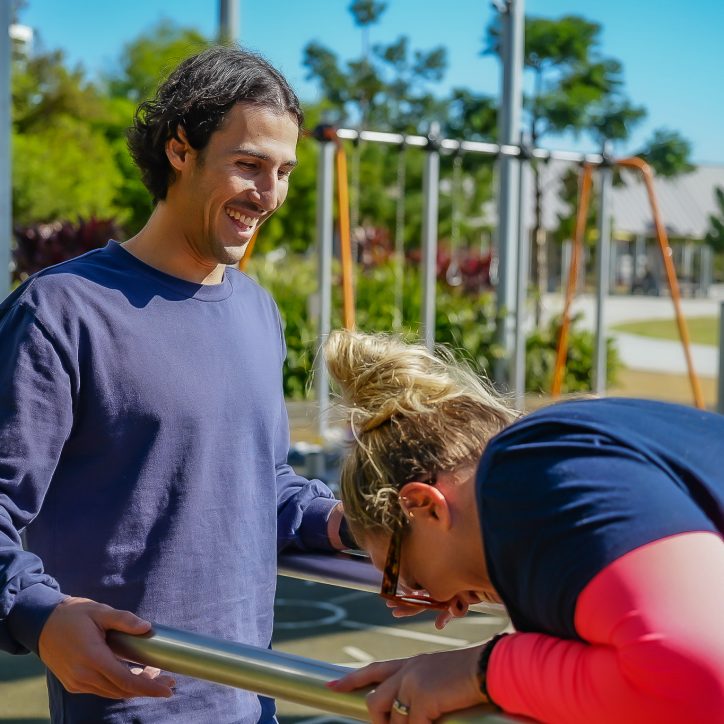
Mental Health
Exercise physiology plays a significant role in managing mental health conditions, including depression, anxiety, and stress-related disorders. It is also helpful in managing diagnosed psychosocial disorders such as schizophrenia. Exercise has been shown to release endorphins, improve mood, reduce anxiety, and enhance overall psychological well-being. Recovery You designs exercise programs that cater to individual needs, preferences, and fitness levels. These programs may include various forms of exercise, such as aerobic activities, resistance training, yoga, or mindfulness-based exercises.
Cognitive Disorders
Exercise physiology is increasingly recognized as a valuable component in managing cognitive disorders such as Alzheimer’s disease and dementia. Regular physical activity has been shown to enhance cognitive function, memory, and overall brain health. Recovery You develops exercise programs that incorporate both physical and cognitive challenges to stimulate the brain. These programs may include aerobic exercises, strength training, balance exercises, and activities that involve problem-solving or memory tasks.
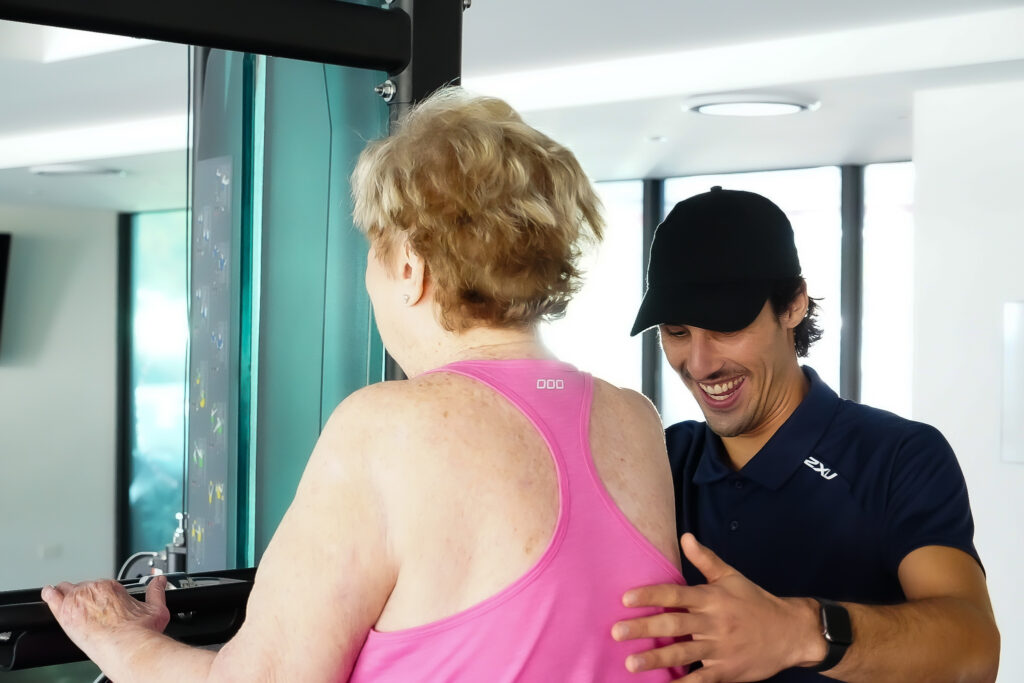

Behavioral Disorders
Exercise physiology can be beneficial in the treatment of behavioral disorders, such as attention deficit hyperactivity disorder (ADHD) and autism spectrum disorders. Regular exercise helps improve attention span, impulse control, and mood regulation. Recovery You works with individuals to develop exercise programs that promote structured physical activity and incorporate activities that engage the mind and body.
Musculoskeletal Injuries
Exercise physiology plays a crucial role in the rehabilitation of musculoskeletal injuries, such as fractures, sprains, or joint replacements. Exercise programs designed by exercise physiologists focus on restoring mobility, strength, and flexibility. These programs may include a combination of range-of-motion exercises, resistance training, balance training, and specific exercises targeting the injured area. Exercise physiologists also provide guidance on proper body mechanics and injury prevention strategies.

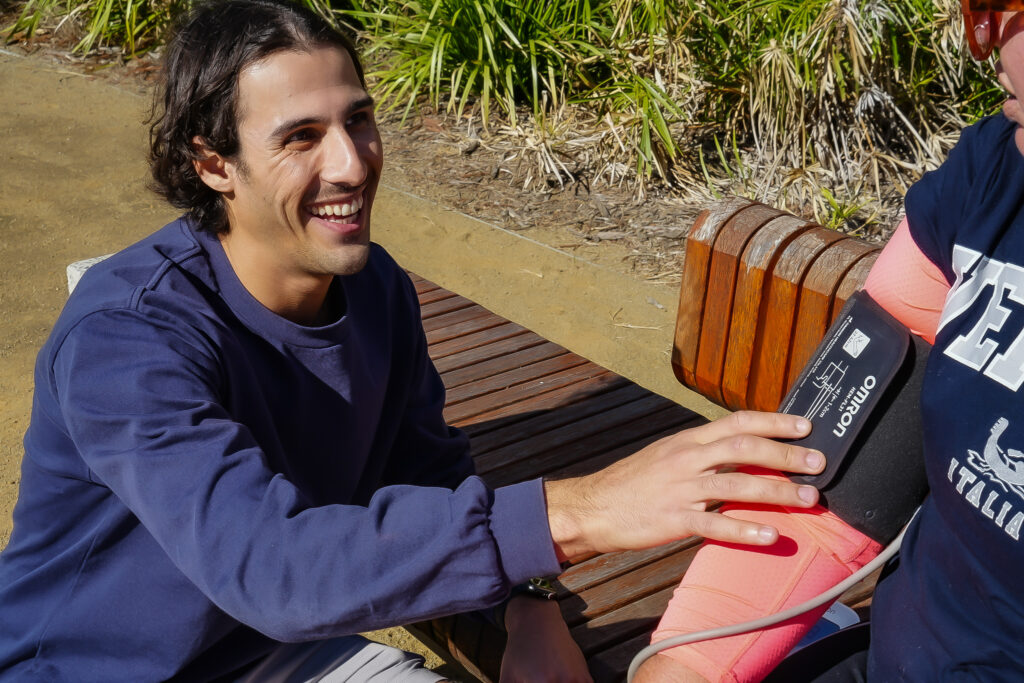

General Health and Wellness
Exercise physiology is essential for promoting overall health and wellness. Exercise physiologists assess individual fitness levels, health goals, and any underlying medical conditions to design personalised exercise programs. These programs often include a mix of aerobic exercises, strength training, flexibility exercises, and other activities that cater to specific needs and preferences. Regular exercise improves cardiovascular health, muscle strength, bone density, metabolic function, and overall physical and mental well-being. At Recovery You, we also focus on educating individuals about healthy lifestyle choices, nutrition, and stress management to support long-term health goals.
More Services
Disease Management
Exercise physiology is used to manage chronic conditions such as diabetes, obesity, and metabolic syndrome. Regular physical activity helps control blood sugar levels, improve insulin sensitivity, manage weight, and enhance metabolic function. Exercise physiologists design exercise programs that incorporate aerobic exercises, strength training, and activities that promote weight management, blood sugar control, and overall metabolic health.
Respiratory Conditions
Exercise physiology plays a crucial role in managing respiratory conditions like asthma, chronic obstructive pulmonary disease (COPD), and cystic fibrosis. Exercise can improve lung capacity, respiratory muscle strength, and overall respiratory function. Exercise physiologists develop exercise programs that include cardiovascular exercises, breathing exercises, and activities that enhance lung function and respiratory endurance.
Chronic Pain Management
Exercise physiology is used in the management of chronic pain conditions such as arthritis, fibromyalgia, and chronic back pain. Exercise has been shown to reduce pain perception, improve joint mobility, strengthen muscles, and enhance overall physical function. Exercise physiologists design exercise programs that focus on flexibility, range-of-motion exercises, strength training, and low-impact activities to alleviate pain and improve daily functioning.
Cancer Rehabilitation
Exercise physiology plays a significant role in cancer rehabilitation by improving physical function, reducing treatment side effects, and enhancing overall quality of life. Exercise has been shown to alleviate cancer-related fatigue, improve cardiovascular health, maintain muscle mass, and reduce the risk of recurrence. Exercise physiologists work with individuals undergoing cancer treatment to develop exercise programs that are safe and tailored to their specific needs, taking into account treatment side effects and energy levels.
Autoimmune Disorders
Exercise physiology is utilized in managing autoimmune disorders such as rheumatoid arthritis, lupus, and multiple sclerosis. Regular exercise can help improve joint mobility, reduce inflammation, enhance muscle strength, and alleviate fatigue. Exercise physiologists design exercise programs that incorporate low-impact activities, strength training, and flexibility exercises to support joint health, reduce symptoms, and improve overall physical function.
Gastrointestinal Conditions
Exercise physiology can assist in managing gastrointestinal conditions like irritable bowel syndrome (IBS) and inflammatory bowel disease (IBD). Regular exercise can improve digestion, reduce symptoms such as bloating and abdominal discomfort, and enhance overall gastrointestinal function. Exercise physiologists develop exercise programs that focus on low-impact activities, aerobic exercises, and activities that promote stress reduction and gut health.
Aging and Chronic Diseases
Exercise physiology is crucial in managing chronic conditions associated with aging, such as osteoporosis, cardiovascular disease, and cognitive decline. Regular exercise can help maintain bone density, cardiovascular health, cognitive function, and overall functional independence. Exercise physiologists develop exercise programs that include weight-bearing exercises, cardiovascular exercises, balance training, and activities that promote cognitive stimulation to enhance overall health and well-being in older adults.
What else do we provide?
Telehealth Appointments
If you’re a little far away, or not eager to see an exercise physiologist face-to-face, we offer telehealth appointments instead! Telehealth is a great way to engage in exercise treatment when there are other barriers at play. A little home equipment always helps, but even if you have nothing at home, there are plenty of no-equipment exercises that will make for a full and effective exercise session.
Online Exercise Programming
Remembering a home program can be difficult. That’s why we use an online exercise prescription platform so that you can easily access and remember your program outside of your sessions.
Out of Session Care
You don’t need to wait until your next session to ask questions. Reach out at anytime where I’m more than happy to discuss and modify your treatment according to how you’re feeling on the day.
Have Questions?
Please feel free to contact us with any questions or concerns you may have or check out our FAQs. We will work with you to assess your individual situation, needs and goals and work towards building a personalised plan for you.

